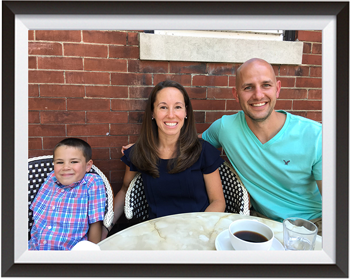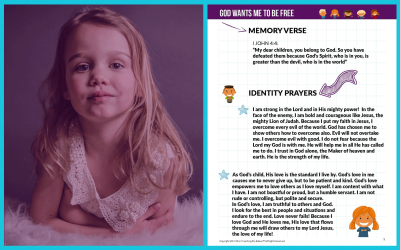
Written by JEANNENE S. for Who’s Teaching the Babies?®
One day my 7-year-old son and I had a conversation about giving. It all started with my ever-watchful Mom eye, scanning my kid to see how he is growing and maturing, and if the fruit of what has been planted in him is producing. I began by reminding him of how much stuff he has been accumulating over the years, and particularly since his last birthday and Christmas. I asked him if he ever thought about giving one of his toys to someone who might be without, or even just to a friend, since his currency at the moment is toys.
We’ve often taught him how to give of his time through service, and to give of his heart through praying for others, friending those who need a friend, and sending a card to one who needs encouragement. However, with his ever-increasing admiration for new toys and the toys his friends have, I wanted to see where his heart was with giving what might appear to tangibly cost him something. When I asked him what he thought of ever giving one of his toys to a friend, because he had so much, his response was, “Well, I could do that. I’ll give them one of the toys I don’t really want.” This is where I go from heart beaming to smacking my forehead.

No matter how much I tried to explain to him the concept of why this might make logical sense but not necessarily be generous, he insisted his idea was pretty wise. In fact, it just might make room for him to get new toys. Oh boy! I’ve got about 70 Bible verses for that, but I first need to reconcile with this one, “Each of you should give what you have decided in your heart to give, not reluctantly or under compulsion, for God loves a cheerful giver” (2 Corinthians 9:7, NIV). While this verse doesn’t exactly enforce my principle, it encapsulates how my husband and I feel the Holy Spirit has led us to lead our child. This means he may not always say or feel what he “should,” but he is aware of what he thinks is right, how he feels, what Father God feels about him, and…even what the Bible says. When we think that what he perceives about a particular situation is not in unity on all these fronts, we are reminded not to force him to agree, but rather to encourage him to see more clearly through asking him questions or giving him opportunity to demonstrate. That may mean that he will not say or feel what we want him to right now. However, we know the washing of the Word of God promises to transform, and the opportunity to be a doer of that Word brings clarity.

So, if we allow him to have an honest or genuine opportunity to be a doer of the Word that we wash him in regularly, it will not only clarify his understanding, but it will also begin to transform his heart. His capacity for generosity will grow when it comes from a real place within himself, as opposed to compulsion. That’s not to say we don’t set standards, limits, or that we negotiate on the standards that God has prescribed for our good. However, we make room for the Master Gardener to nurture the seeds within our son, when it comes to the motivations of his heart. In this case, if our son gives cheerfully what he sees to generously give, (outside of the standards of the law God has instructed him to give), and we continue to wash him in the Word with the way we live and what we say, that generosity will grow, freely.
Before writing this post, I had the privilege of asking WTTB® Founding Ministry’s bookkeeper and financial enthusiast (and a parent herself), if she had any additional tips to help kids grow in generosity and how they see currency. Through our discussion, here are some foundational keys that stuck out to me:
- Teach your kids—in both deed and in word—gratitude.
- Giving in all its many forms
- Really trusting our Good Father God that He will always meet our needs above all we could ask or think.
- Consistency.
- Sharing.
- Recognizing God’s blessing and where all good gifts come from.
- And finally, hearing God’s voice.
This last key is so important, and sometimes forgotten. We teach them and have them do what is right by the standards that God has set, but we also want to show them how to Hear God’s voice for themselves so that the generosity of their hearts can grow beyond their perceived limits. Then they can give cheerfully and willingly, because they know their Good Father has spoken to them, and will abundantly meet them where they are.
Only He knows what purposes He ultimately created them to fulfill, and how they were uniquely made. While we as parents and teachers may not quite understand what it looks like now, and it may not even be what we want it to look like now, only God’s voice will call them to become what they’ve yet to realize in Him. I can put down the Mom eye-scanner, and simply ask my son, “What does Father God have to say about that, to you?”
For more information on how to nurture generosity and giving in your kids, check out this book, The 5 Money Conversations to Have With Your Kids at Every Age and Stage, by Scott and Bethany Palmer. They also have a website you can check out for more tips on this topic, as well as assessments to find out what you or your kids “Money Personality” is, recognizing we all view our giving differently, based on personality.
Want to receive new blog posts and resources right in your inbox?
Subscribe to our Mailing List.
Get social with us.
Read More
Mothering Fully Present
God isn’t looking for perfect moms with perfect methods and ideas to raise His kids. Just moms who are humble and pliable and rest-FULL enough from the inside-out to hear His voice and partner with Him.
Identity Statements
Throughout over 30 years of ministering identity and destiny to children, we have put together many prayers, identity statements, and tools to empower and speak truth into precious young lives. Here we have the privilege of being able to offer some of these resources just for YOU to minister life in your very own home.
God Wants Me to be Free – FREE LESSON PLAN
Through this simple, but powerful lesson plan, teach your children the authority that they have over the enemy and how they have the power to choose what they will allow to affect their heart and soul.
Who's Teaching the Babies?®
Establishing identity and destiny one baby at a time.
QUICK LINKS
FOLLOW US




0 Comments